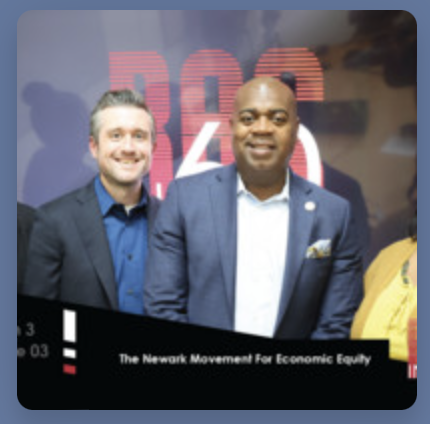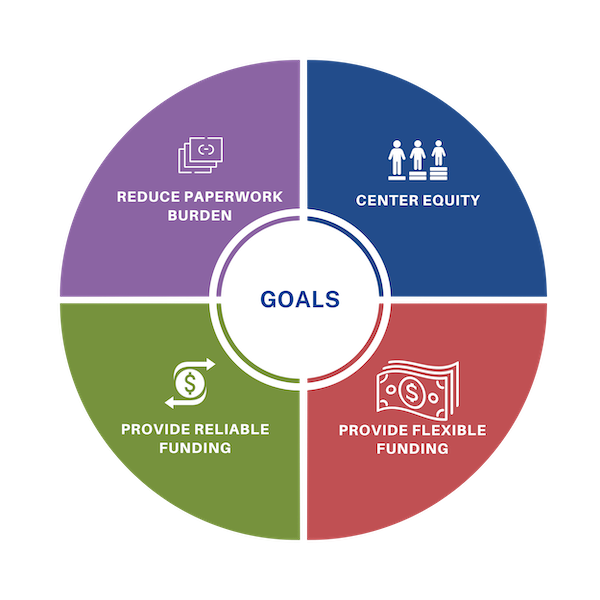Site Search
- resource provided by the Forum Network Knowledgebase.
Search Tip: Search with " " to find exact matches.
TD Charitable Foundation, the charitable giving arm of Cherry Hill-based TD Bank, awarded $5.8 million through the 16th annual Housing for Everyone grant program. A total of 33 nonprofit organizations received grants ranging from $150,000 to $250,000, TD announced March 8.
Five recipients from the Garden State were chosen, receiving a total of $875,000.
The program aims to help housing organizations deliver resident services such as eviction prevention assistance, workforce development and child care.
“Housing organizations have been on the front lines of both the affordability crisis and the COVID-19 pandemic. They have been called upon time and time again over the past few years to do everything from helping people find affordable homes to serving as vaccine clinics. Each time, they’ve stepped up and expanded their mandates to meet the needs of some of the most vulnerable members of our communities and work towards an equitable COVID-19 recovery,” Paige Carlson-Heim, director of the TD Charitable Foundation, said in a statement.
TD Charitable Foundation, the charitable giving arm of Cherry Hill-based TD Bank, awarded $5.8 million through the 16th annual Housing for Everyone grant program. A total of 33 nonprofit organizations received grants ranging from $150,000 to $250,000, TD announced March 8.
Five recipients from the Garden State were chosen, receiving a total of $875,000.
The program aims to help housing organizations deliver resident services such as eviction prevention assistance, workforce development and child care.
“Housing organizations have been on the front lines of both the affordability crisis and the COVID-19 pandemic. They have been called upon time and time again over the past few years to do everything from helping people find affordable homes to serving as vaccine clinics. Each time, they’ve stepped up and expanded their mandates to meet the needs of some of the most vulnerable members of our communities and work towards an equitable COVID-19 recovery,” Paige Carlson-Heim, director of the TD Charitable Foundation, said in a statement.
Eastside High School in Paterson sits in the middle of a struggling neighborhood, in a city where 25% of the residents are living below the poverty line, according to the 2020 U.S. Census.
Paterson’s poverty rate is more than twice the state average of 10%, which makes the school, built in 1926, a refuge — and now a resource.
On Thursday, Montclair State University president Jonathan Koppell came to Eastside with a $1 million grant and a vision: to make the school into a community hub, offering free meals, health care, and mental health counseling, not just to the 2,000 students, but to their families as well.
The initiative is called One Square Mile, and it is being seeded with a $1 million grant from the Geraldine R. Dodge Foundation. The program was developed by Koppell during his tenure as Dean of the Watts College of Public Service and Community Solutions at Arizona State University, which worked with the Phoenix-area community of Maryvale to address poverty.
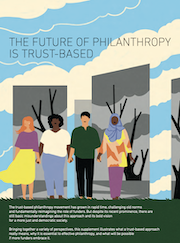
The trust-based philanthropy movement has been gaining momentum recently, but there are still some misconceptions about this approach and its ambitious goal of creating a fairer and more democratic society. This supplement, published in the Stanford Social Innovation Review, aims to clarify what a trust-based approach truly entails, why it is crucial for effective philanthropy and what kind of progress we can make if more funders adopt this approach.
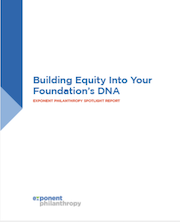
Funders are being asked to show how they are addressing social inequities by specifying what they do and who they are. How does philanthropy begin to embed equity into grantmaking, policies, and culture?
Healthy Communities Foundation has been on a journey to address this question by advancing health equity through a racial equity lens. This report describes that journey and offers practical ways of inspiring action so you can integrate equity into your foundation’s DNA.

Recommendations for Capital Grantmakers, is written for arts funders who are looking to make smart and impactful investments. It includes tips for planning a grantmaking strategy, making the grant match the need, and ensuring that the grant is implemented successfully. This summary highlights findings from Nonprofit Finance Fund's study of 36 capital grants made by the Kresge Foundation to arts organizations between 2010 and 2012.
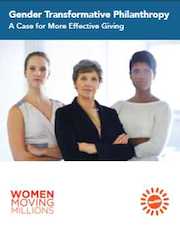
Attention to the role of gender is most useful with programs that seek to change unhealthy behaviors, such as reproductive health and teen pregnancy, gender-based violence, substance abuse and educational under-achievement. This guide suggests that funders can work to improve program outcomes by helping the funding community and grantees recognize how men and women are affected by disparities in social expectations, such as codes of manhood and womanhood.
A Framework for Change
The Doing Good Better Steering Committee encourages funders to focus on and advocate for four (4) changes that can make an immediate difference in addressing power dynamics between nonprofits and funders and maximizing nonprofit impact. These goals are aligned with Trust Based Philanthropy, and are interdependent; when combined, they foster equity and a spirit of mutual trust between grantmakers and nonprofit partners. For more details about a specific goal, click on its individual goal link below.
• Goal 1: Center Equity
• Goal 2: Provide Flexible Funding
• Goal 3: Provide Reliable Funding
• Goal 4: Reduce Paperwork Burden
Self-Assessment/Reflection Tool for Funders
Philanthropy and Nonprofits for Greater Impact: The “Doing Good Better” Blueprint Video
Privacy Policy, Effective Date: April 15, 2009
We at the Council of New Jersey Grantmakers recognize that our relationships with current and prospective customers are based on integrity and trust. We work hard to maintain our customer’s privacy and are very careful to preserve the private nature of our relationship with our customers. Simultaneously, the very nature of our business requires that we collect or share certain information about our customers with other organizations or companies. Our policies and procedure for collecting and disclosing personal information is detailed below:
Collection of Information
Except as otherwise stated herein, we may collect public and nonpublic information about our customers from the following sources:
- Applications, forms and other information provided to us by our customers. This information may be collect in writing, in person, by telephone, electronically or by any other means. This information may include our customer’s name, physical address, email address, telephone number, employment information, income history, social security or federal tax identification number, and credit references.
- Transactions completed with Council of New Jersey Grantmakers or any of its affiliates. Our affiliates include financial institutions, trade references, governmental agencies or any other entity that we may deal with in the normal course of doing business. This information may include past payment history, funds availability and account usage.
- Consumer reporting agencies. This information may include account information and information about our customer’s creditworthiness.
- Information obtained through the public domain. This information may include real estate records, telephone numbers or any other information that is available to the general public.
Collection of Information Through Our Web Sites
We do not collect through our web site any “personally identifiable information” as that term is defined in the California Online Privacy Protection Act of 2003. We do collect statistical information regarding web site traffic but that statistical information does not identify the individual user or visitor.
Disclosure and Protection of Information Collected
To the extent permitted or required by law, we may disclose the information we collect, as described above, to banks, business partners, affiliates, and the representatives who service our customers. We do not sell any of our customer information. In order to make sure that our information is accurate, updated and secure, we take the following additional measures:
- Current Information. We attempt to keep our records regarding customer information current and accurate. If any of our customers have reason to believe that our records are not current or are inaccurate, we request that they contact Craig Weinrich. We respond to requests to correct inaccurate information in a timely manner.
- Limited Access. Our employees have been educated on the importance of customer privacy and confidentiality and have been trained in the proper handling of customer information and instructed to adhere to the strictest of security measures set in place. Employee access to a customer’s confidential information is only granted on a need-to-know basis.
- Electronic Information Secure. All information that is stored electronically is secured by reasonably available technology, including but not limited to firewalls and data encryption.
Changes to this Privacy Policy
Council of New Jersey Grantmakers reserves the right to change this Privacy Policy at any time. Please check this page periodically for changes. Your use of this site following the posting of changes to these terms will mean you accept those changes. Information collected prior to the time any change is posted will be used according to the policies in effect at the time the information was collected.

